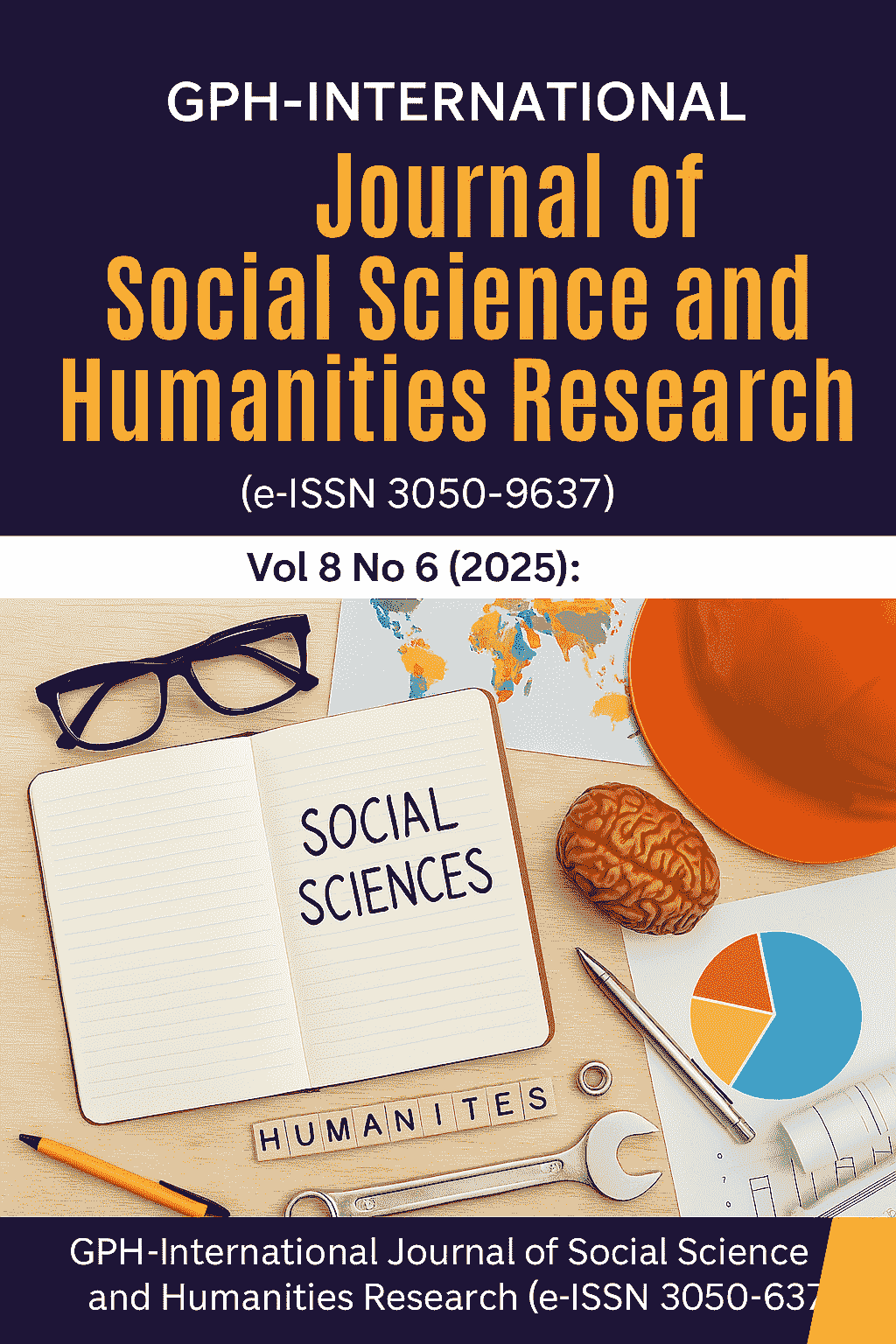LEGAL PROTECTION OF THE CITIZENSHIP STATUS OF CHILDREN FROM MIXED MARRIAGES BASED ON LAW NUMBER 12 OF 2006 ON CITIZENSHIP
Abstract
Marriage is a physical and spiritual bond between a man and a woman as husband and wife with the aim of forming a happy and eternal family based on the One Almighty God. Mixed marriage is a marriage between two husbands/wives who are each subject to different laws. This marriage has several consequences related to citizenship for each party involved in the marriage. The purpose of this study is to determine the legal protection of the citizenship status of children resulting from mixed marriages based on Law Number 12 of 2006 concerning Citizenship and to determine the civil rights of children resulting from mixed marriages according to the legal system in Indonesia. The method in this study uses a normative judicial related by the author. The sources of legal material used include legislation related to legal issues being handled. The results of the research that the legal protection for the citizenship status of children resulting from mixed marriages according to Law Number 12 of 2006 is that children get limited dual citizenship until the child has reached the age of 18 years or is married, the child is required to choose one nationality, he chooses and regarding the civil rights of the child, if the child with limited dual he is 18 years old and has chosen the citizenship of choice and then he can realize his rights according to the applicable regulations.
Downloads
References
BOOK AND JOURNAL
Badri, R. (1985). Marriage Law and Criminal Code. CV. Amin, Surabaya.
Gautama, S. (2008). International Civil Law. Bina Cipta, Bandung.
Purwadi, A. (2018). Basics of International Civil Law. Center for Law and Development Studies (PPHP), Surabaya.
http://www.google.co.id/amp/s/www.kompasiana.com/amp/asafila/pentingnya-status-kewarganegaraan- untuk- mendapatkan-kepastian-hukum, accessed on May 11, 2025, at 10.00 WITA.
Setiono. (2004). Supremacy of Law. Presisindo Academy, Surakarta.
http://journal.uii.ac.id/JIPRO/article/download/11142/8509, accessed on May 11, 2025, at 14.00 WITA
Saleh, K.W. (1976). Indonesian Marriage Law. Ghalia Indonesia, Jakarta.
Erdianti, R.N. (2020). Child Protection Law in Indonesia. UMM Press, Malang.
Starke, J.G. (1989). Introduction to International Law. Ninth Edition. Aksara Persada, Jakarta.
Isharyanto. (2016). Citizenship Law of the Republic of Indonesia. CV. Absolute Media, Yogyakarta.
Isnaeni, M. (2016). Indonesian Marriage Law. Refika Aditama, Bandung.
Abdulkadir, M. (1993). Indonesian Civil Law. PT. Citra Aditya Bakti, Bandung.
Irwanto. 2009. Child Protection and Basic Principles. Yayasan Obor Indonesia, Jakarta.
Gisita, A. (2004). Child Protection (Collection of Essays). Bhuana Ilmu Populer, Jakarta.
Aryumardi. (2003). Civic Education. Prenada Media, Jakarta.
Wahono, W. (2019). Civic Education and Textbook. Deepublish, Yogyakarta.
Sigit, R.N. (2020). Protection of Stateless Persons. University of Jambi, Jambi.
Charity, M.L. (2016). The Urgency of Dual Citizenship Regulation for the Indonesian Diaspora. Constitutional Journal, Jakarta. Page 816.
Wulansari, E.M. (2015). The Concept of Limited Dual Citizenship and the Citizenship System in Indonesia. Recht Vindings Online, Jakarta.
Purwanto, B. (2019). Citizenship Practices in Indonesia. Ombak Press, Bantul.
http://ww.sinar-harapan.co.od/berita/0512html.suradi.indonesia-perlu-terapkan-dwi-kewarganegaraan. Accessed on May 19, 2025, at 20.00 WITA
Suparman, E. (2018). Indonesian Inheritance Law in the Perspective of BW. Refika Aditama, Medan. [23] http://www.Hukumonline.com234532//chapter201, accessed on March 14, 2025, at 14.00 WITA
http://www.wikipwdia.co.id.ghr accessed on March 14, 2025, at 14.35 WITA
Subekti. 2008. Family Law and Inheritance Law. Intermasa, Jakarta.
B. Legislation
Constitution of the Republic of Indonesia Year 1945
Civil Code
Law Number 1 of 1974 Concerning Marriage
Law Number 39 of 1999 Concerning Human Rights
Law Number 23 of 2002 Concerning Child Protection
Law Number 12 of 2006 Concerning Citizenship
Law Number 35 of 2014 Concerning Amendments to Law Number 23 of 2002 Concerning Child Protection
Law Number 16 of 2019 Concerning Amendments to Law Number 1 of 1974 Concerning Marriage
The authors and co-authors warrant that the article is their original work, does not infringe any copyright, and has not been published elsewhere. By submitting the article to GPH-International Journal of Social Science and Humanities Research, the authors agree that the journal has the right to retract or remove the article in case of proven ethical misconduct.














 Firozpur Jhirka, Haryana, India
Firozpur Jhirka, Haryana, India

